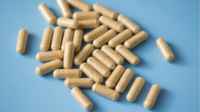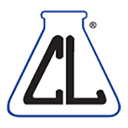- Home
- / CL Answers
- / Is it true that most coffee is contaminated with mold?
www.consumerlab.com/answers/is-it-true-that-most-coffee-is-contaminated-with-mold/mold-in-coffee/
Save to favorites
This feature is restricted to active members.
Join now to save favorites and get all member benefits, including over 1,400 reviews.
Join NowAlready a member? Sign in here.

Our Members Asked:
Is it true that most coffee is contaminated with mold?

Answer:
Coffee beans, like many other agricultural crops and foods (oats, corn, peanuts, rice, wheat, cocoa, grapes etc.) are susceptible to contamination with mold. While some molds are harmless, others can produce substances called mycotoxins, such as ochratoxin A (OTA) and aflatoxin B1, which can be harmful.
Sign in as a member to find out if the amounts of molds and mycotoxins found in roasted and brewed coffees pose a health risk, and what to know when using coffee "pods." Specific brands discussed include Bulletproof, Danger, Death Wish, Equal Exchange, Isagenix, Lifeboost, Peet’s, Purity, Scout & Cellar, Subtle Earth, and The Bean Coffee Company.
In addition the results of its expert testing, ConsumerLab uses only high-quality, evidence based, information sources. These sources include peer-reviewed studies and information from agencies such as the FDA and USDA, and the National Academy of Medicine. On evolving topics, studies from pre-print journals may be sourced. All of our content is reviewed by medical doctors and doctoral-level experts in pharmacology, toxicology, and chemistry. We continually update and medically review our information to keep our content trustworthy, accurate, and reliable. The following sources are referenced in this article:
- Al-Abdalall, Can J Pure Appl Sci 2014
- Almasoud, JSFA Reports 2022
- EFSA Panel on Contaminants in the Food Chain, EFSA J 2010
- FDA Compliance Policy Guidance Manual 2014
- Fapohunda, Basic Res J Agric Sci Rev 2014
- IARC Evaluation of Carcinogenic Risks to Humans
- IARC Monograph 2015
- IARC Monograph 2015
- International Coffee Organization 2005
- Malir, Toxins 2014
- Martins, Food Addit Contam 2003
- Micco, Myctoxin Res 1992
- NSF 2011
- Soliman, J Agric Food Chem 2002
- Stegen, Food Addit Contam 1997
Join today to unlock all member benefits including full access to all CL Answers and over 1,400 reviews.
Join NowAlready a member? Sign In Here.
Join now at www.consumerlab.com/join/
 14 Comments
14 Comments
Join the conversation
Submit your comment
This feature is restricted to active members.
Join now to add comments and get all member benefits, including over 1,400 reviews.
Join NowAlready a member? Sign in here.

Agree to Comment Terms
Please abide by the following:
- If you make a statement of fact, such as whether a type of treatment does or does not work, state your basis -- such as personal experience or a published study.
- If you make a positive or negative comment about a product, note whether or not you have a financial interest in the product or in a competing product.
- Please be respectful in your tone.
- Please do not submit any type of HTML markup or scripting as it will not be accepted, nor will posts that exceed 2,500 characters.
For your privacy, only your first name (from your account) followed by a random number will appear with your comment. Your last name and email address will not be displayed.
Your comment has been submitted
We will review your comment before it is posted.

Latest Research Updates (Clinical Updates)
Coffee Pods & Mold
June 25, 2024
Mycotoxins in Coffee?
June 18, 2024
Toxin In Coffee?
May 06, 2022
Is roasted coffee likely to be contaminated with ochratoxin A? Find out what a recent study found in our updated article about contaminants in coffee.
Also see our articles about ochratoxin A in cocoa and chocolate and oat cereals.
Related CL Answers (5)

Related Content
Join over 100,000 Members
Find the best products with instant access to our latest tests & reviews of over 1,400 health products.
Save money by finding high-quality products at lower cost.
Stay safe with the latest clinical findings, warnings, and expert answers.
Suggest products to test.
Stay informed with our e-newsletter.
Ratings of ConsumerLab

The "Updated" date indicates when new information was most recently added to this article. In the full article, the newest information is highlighted in yellow.












Nancy23983
October 18, 2025Some different types of coffee triggers my asthma and makes me sneeze I am
Allergic to black mold
Reply to this post…
Joe19842
June 25, 2024It would also be nice to know what levels of various plastic chemicals leaches into the coffee during the use of these pods.
 ConsumerLab.com
ConsumerLab.com
June 26, 2024You can find information about the risk of plasticizers leaching from from coffee pods here https://www.consumerlab.com/answers/is-drinking-coffee-good-or-bad-for-heart-health/coffee-heart-health/#plasticizer.
Meribeth19944
July 07, 2024I've always wondered how much plasticizers leach into coffee from the coffeemakers themselves--hot plastic and plastic tubing couldn't be good.
Michelle23711
September 04, 2025I wondered the same and decided to use a French press. A glass jar and stainless steel for the pressing mechanism.
Reply to this post…
Christine19833
June 24, 2024I use a Chemex pour over coffee maker that is made out of glass. It's low tech and very easy to clean.
Jurate19942
July 07, 2024For single cup of coffee, I love using a ceramic Hario Dripper with their paper filters over a clear double wall glass mug. Just rinse the dripper after use and coffee is already in mug to drink!
Reply to this post…
Lise19752
June 18, 2024What about coffee pods - such as those made for Nespresso machines? If you exceed the suggested shelf life - do they grow mold?
 ConsumerLab.com
ConsumerLab.com
June 25, 2024Great question! We've added information about this to the following section of our article: https://www.consumerlab.com/answers/is-it-true-that-most-coffee-is-contaminated-with-mold/mold-in-coffee/#coffee-pods-and-mold
Reply to this post…
John3474
March 04, 2015I have a Kerrigan 2.0 does anyone have any suggestions on cleaning it to avoid the mold problem?
Anthony3479
April 11, 2018If you are speaking of a machine similar to a Keurig, I add 2 drops of 35% food grade hydrogen peroxide. I calculated this amount to produce a final concentration between 100-300ppm which is safe to drink (also much of it is destroyed in heating). This prevents algae formation in the reservoir and hoses.
 ConsumerLab.com
ConsumerLab.com
April 19, 2018Hi Anthony - The NSF provides some guidance for cleaning coffee makers, found here: https://www.nsf.org/consumer-resources/articles/clean-germiest-home-items
Reply to this post…
MAX3470
March 04, 2015Is there a chance of mold in roasted coffee stored in the freezer compartment of the refrigerator for several months?
 ConsumerLab.com
ConsumerLab.com
March 09, 2015Hi Max - Just as with other foods, freezing coffee should de-activate mold spores (they won't grow), although it won't kill them.
Reply to this post…